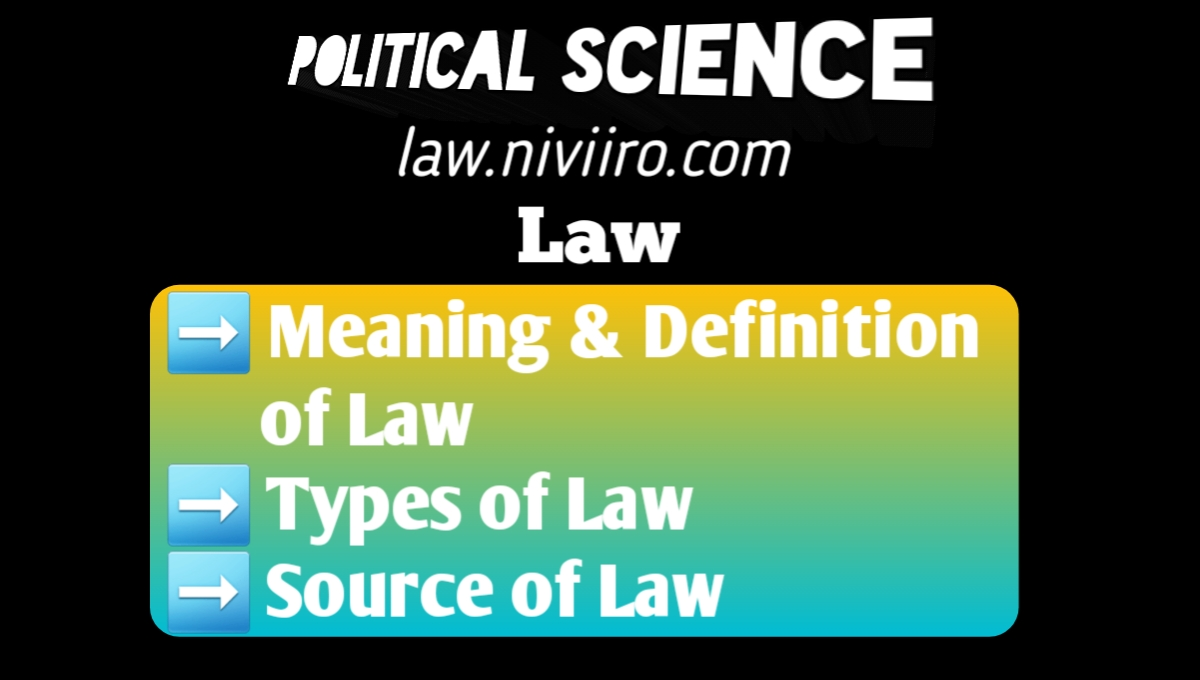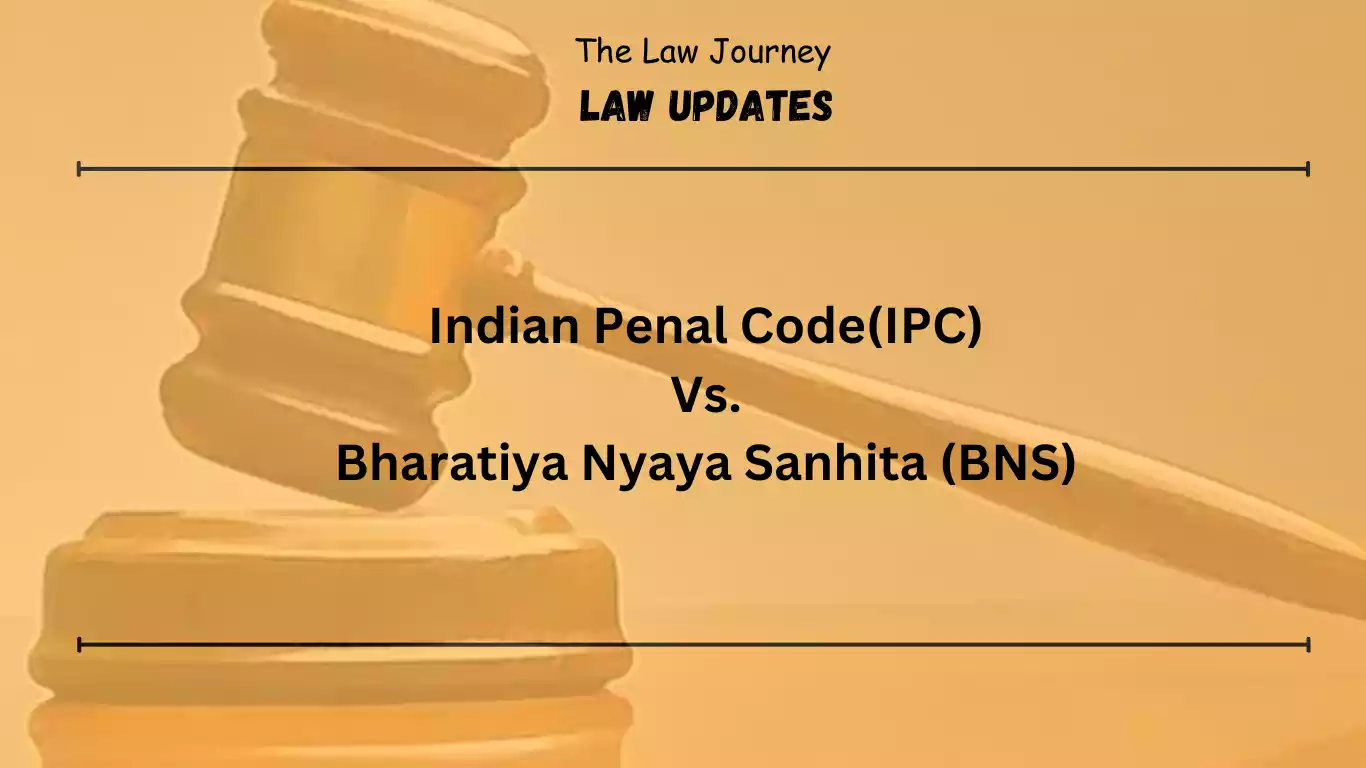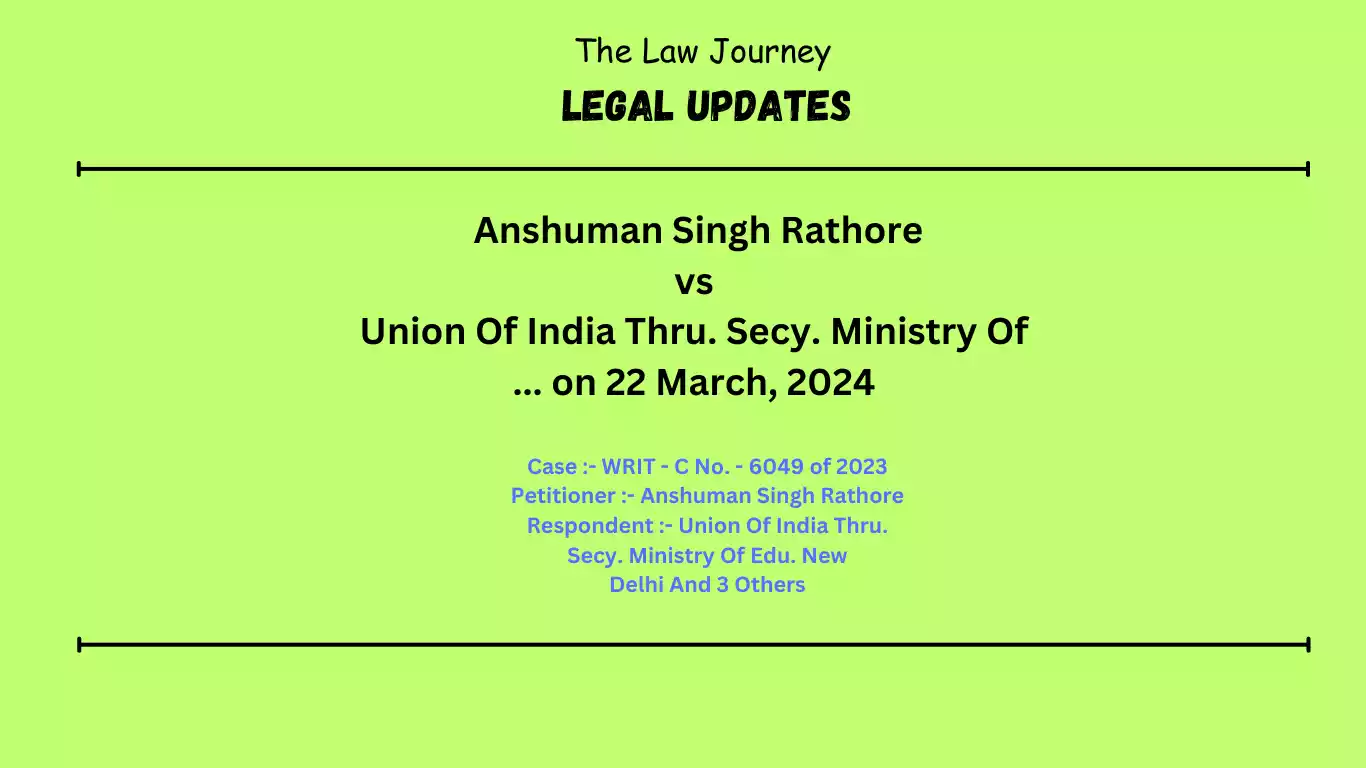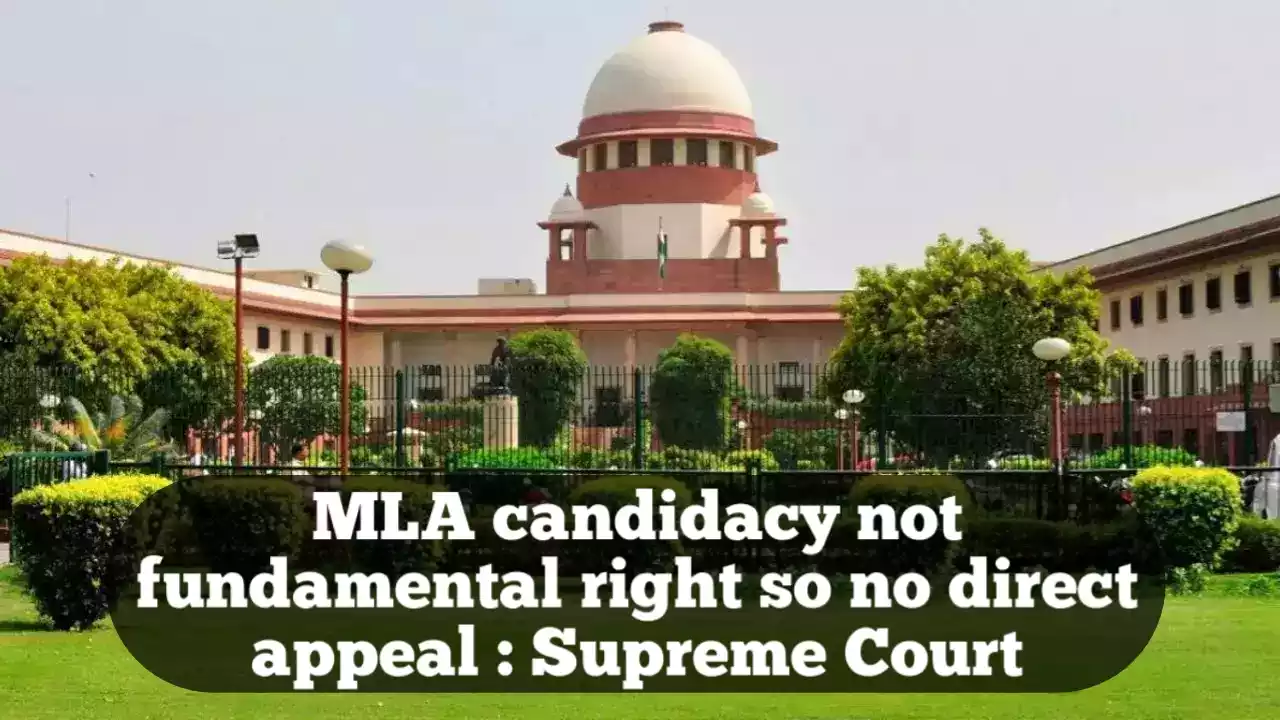The term “Law” derives from “an old Teutonic root ‘lag,’ which meaning something that rests fixed or evenly.” Law governs life, and without it, there is chaos and confusion. The term law refers to that which is consistent. There are two sorts of laws: physical and human. Physical laws are those that govern the natural world. Human laws are those laws that govern human life. In political science, the term law refers to a set of laws that govern human behaviour. The state functions through the government, and the government interprets the state’s will through law. The rule of law is the medium through which sovereignty is exercised.
“According to E. Asirvatham, “any discussion of sovereignty entails the topic of law.” Sovereignty is merely a theoretical notion that has little relevance until it manifests itself in and through law.”
Defnitions of Law
- According to Austin: “Law is the command of the sovereign.”
- According to Salmond, “Law is a collection of the rules which the State recognises and applies in the administration of justice.”
- In the opinion of Holland; “A law is a general rule of external human action enforced by a sovereign political authority.”
- According to H.R. Soltou, “A Law is a rule of behaviour for the members of state, the disregard of which meets with a penalty which will be enforced by the state’s machinery of power.”
Classification of Laws
Laws are of the following types:-
(1) Private Laws, (2) Public Laws, (3) Statute Laws, (4) Constitutional Laws,
(5) Common Laws, (6) International Laws, (7) Ordinances, (8) Administrative Laws.
Private Laws
Citizens’ relationships to one another are governed by private laws. They govern interpersonal relationships. “In Private Law”, says Holland, “the parties concerned are private individuals above and between whom stands the state as an impartial arbiter.”
Public Laws
Public laws are those that govern citizens’ relationships with the state. Differentiating Public Law from Private Law According to Holland, “in public law, the state is also present as an arbiter, although being among the parties interested.”
Statute Laws
Statute Laws are laws that are enacted by the Legislative Assembly or the Parliament. Nowadays, democratic governments are popular in most countries, and most laws are drafted by parliaments in those countries.
Constitutional Laws
Constitutional Laws are defined as “laws that directly or indirectly impact the distribution or exercise of power in the state” and are “enforced by the courts.” Constitutional Laws are the fundamental laws that regulate how a state’s government operates. Constitutional laws, in short, are the laws that define, interpret, and control the functions of the government.
Common Laws
Common laws are those that are based on conventions but are enforced by law courts in the same way that statute law is. In England, common laws are very prevalent.
International Laws
International laws are rules that govern how the general body of civilised governments interacts with one another. International laws are the set of regulations that govern the interactions of states. These laws are not framed by any sovereign law-making authority, nor are they enforced by any governmental authority. However, these regulations are supported by International Public Opinion. These rules are intended to govern the behaviour of numerous countries around the world.They have force only to the extent that they are recognised and approved by the various international states.
For example, it is commonly established international law that no foreign jet may fly over the territory of any country without first obtaining permission from that country. This international law is widely recognised by all governments on the planet.
Ordinances
Ordinances are orders issued by the executive branch of government within the power given to it by state law. In other words, in the absence of Parliament, the President issues the instructions necessary to deal with the emergency. Ordinances, in general, are not permanent. They are provided for the sole purpose of dealing with an emergency.
Administrative Laws
Administrative laws, according to Dicey, interpret the office and responsibilities of government employees. Administrative laws enable public officials to keep law and process distinct from private individuals. These laws also seek to interpret government officers’ privileges. These laws are unpopular in the United Kingdom, the United States of America, and India. They are popular in France and a few other European countries. If a citizen and a government employee disagree, the citizen may file a complaint with the Administrative Courts. The matter is resolved by the Administrative Court using administrative laws. Administrative Courts are unpopular in India, England, and the United States. All cases are filed in the regular courts here.
Sources of Law
Following are the sources of law:
Customs
Customs plays a critical role in the creation of laws. The majority of laws are derived from customs and are recognised by the state. Turning the pages of political history reveals that in the Tribal Age. Whenever a conflict emerged between two tribal members, the chief of the tribe mediated the dispute. The heads of tribes used to seek the assistance of conventions and traditions in resolving disputes. When tribes expanded into states, these customs became laws. No state can afford to disregard national customs.
In this regard, MacIver has very accurately stated, “The state merely writes new sentences and scratches out old ones in the vast book of law. Much of the book was never written by the state at all, and by all of it, the state is bound, except for the code, which it alters from generation to generation. The state cannot remake the law as a whole at any time, any more than a man can remake his body “. The English Common Law arose mostly from conventions.
Religion
Religion was important in the formation of rules in the primitive community. In most countries, religion served as the foundation of legislation. Woodrow Wilson has beautifully pointed out in this regard, “Indeed the early law of Rome was little more than a body of technical religious rules, a system of means for obtaining religious rights through the proper carrying out of certain religious formulas”. The origins of Hindu law in India can be traced back to Manu’s code. Similarly, the origins of Mohammedan law can be traced back to Shariat. Divine law, in its full sense, is a law revealed by God via man. Though man may propagate heavenly law, God is the ultimate source of it.
Judicial Decisions
Judicial decisions are crucial in the creation of legislation. According to Gettell, the state “arose not as the creator of law, but as the interpreter and enforcer of custom.” The Judiciary’s role is to interpret and declare the law. However, in carrying out its duties, the judiciary makes new laws. The laws are eventually recognised by the state. Judicial Decisions are thus another source of law. In carrying out his role of settling the issue by interpreting the law, the judge sometimes makes spoken conclusions, which might be referred to in subsequent instances. When there is an ambiguity in a certain statute in modern courts, the judge interprets it in his own way and so sets a new rule.
This new regulation is eventually recognised by the state and becomes law. Supreme Court and High Court decisions are sometimes recognised as laws.
Equity
Equity is another source of law. Equity is defined by Sir Henry Maine as “any body of rules existing by the side of the original civil law, founded on distinct principles and claiming incidentally to supersede the civil law in virtue of a superior sanctity inherent in those principles.” It is a “informal way of developing new law or changing existing law based on inherent fairness or equality of treatment.” A judge’s job is to interpret the law and to administer justice, as everyone knows. However, laws do not always apply in every situation.When laws do not fit in or are confusing, equity principles are employed and cases are determined based on common sense and justice.
Scientific Commentaries
Another source of law is scientific commentary. A scientific analyst, “By collecting, comparing, and rationally arranging legal principles, norms, judgements, and laws, guiding principles for potential instances are established. He demonstrates the omission and derives principles to govern it. He establishes the foundation for new legislation, not the legislation itself “. When the commentary first appears, it is just used to persuade, but once its authority is recognised, it becomes more authoritative than judicial verdicts. According to A. Appadorai, “the opinions of scholarly writers on law have frequently been acknowledged as proper law: in England, for example, the opinions of Coke and Blackstone; in America, of Story and Kent; and in India, of Vijnaneswara and Apararka.”
Legislature
Legislation is the final and most essential source of law. Most legislation in modern times are drafted by the legislature.
Related Post
Whatd do you mean by the term ‘Law’ ?
Law refers to a rule or set of rules, and enforced by courts, regulated by the government of a state, and people are bound to follow it.
Define law ?
According to Austin: “Law is the command of the sovereign.”
What are the types of law ?
Followings are the types of law ;
(1) Private Laws, (2) Public Laws, (3) Statute Laws, (4) Constitutional Laws,
(5) Common Laws, (6) International Laws, (7) Ordinances, (8) Administrative Laws.
References
- R.C. Agarwal, Political Theory
- M.P. Jain, Political Theory liberal and Marxiam
- Prof. H.C. Verma, Modern Political Theory
- Prof. S.L. Verma, Modern Political Theory
- V.D. Mahajan, Political Theory
- J.C. Johari, Political Science

















